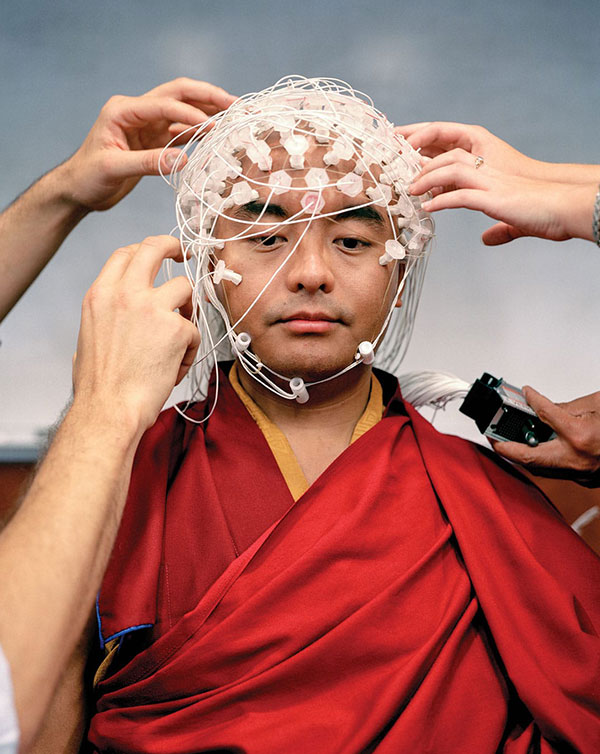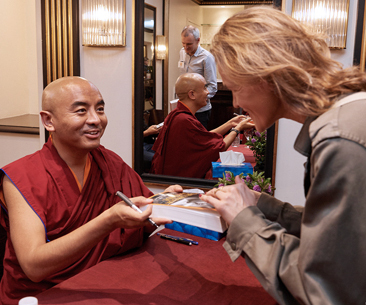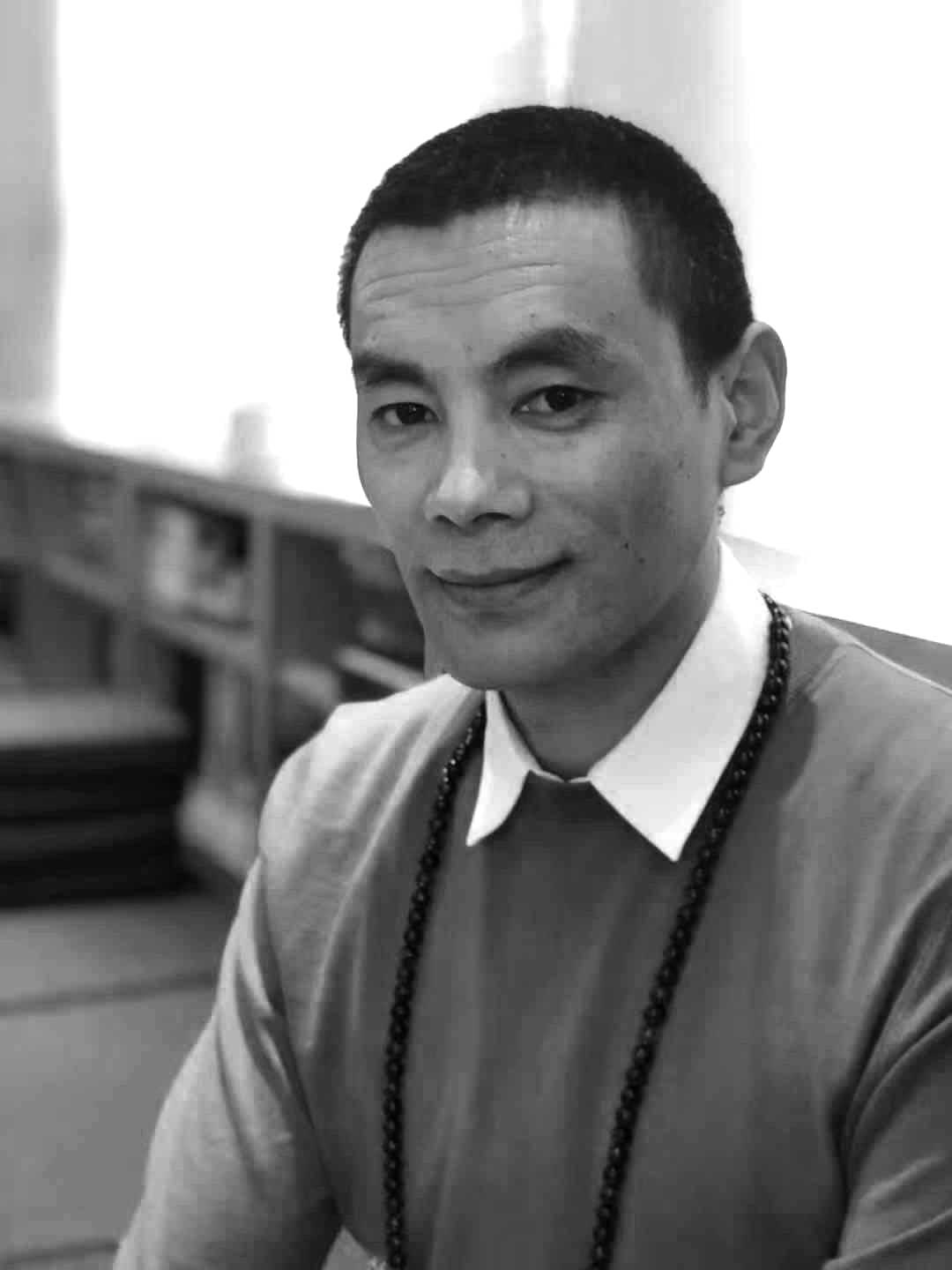Date/Time:
This event takes place November 10-13, 2023.
Registration
Registration will close 1 hour in advance of the event. Full refunds will be given for cancellation requests up to 1 hour in advance of the event.
Who can attend this event?
There are prerequisites for attendance at this event.
Option 1: To have have attended a Tergar Path of Liberation Level 2 retreat with Mingyur Rinpoche or Khenpo Kunga.
Option 2: To have received ngondro transmission and nature of mind pointing out from a qualified lineage holder, and to have had at least 5 years of regular meditation practice.
Translation
Translation from English will be offered in Chinese, French, German, Portuguese, Russian, and Spanish
"It is beyond being an object of conceptual focus, And the mind’s nature is lucidity. There is no path to be traversed and yet, in that way, You enter the path of buddhahood." — Tilopa
In this retreat, our focus will be the seventh topic of The Ganges Mahamudra root text by enlightened Indian master Tilopa — the manner of practicing Mahamudra. Using Tilopa’s root verses as the basis, Mingyur Rinpoche will guide us through the meaning of these profound instructions and teach us how to apply them in our own lives, not only in formal practice but also in our everyday life.
REQUIREMENTS FOR PARTICIPATION:
- Option 1: To have have attended a Tergar Path of Liberation Level 2 retreat with Mingyur Rinpoche or Khenpo Kunga*
- Option 2: To have received ngondro transmission and nature of mind pointing out from a qualified lineage holder, and to have had at least 5 years of regular meditation practice
*Completion of the corresponding practice requirements is NOT required in order to participate in this event.
The requirements for participation were set in consultation with Mingyur Rinpoche. In turn, we ask that you honor them. Thank you!
WHY SHOULD I ATTEND?
If you wish to deepen your understanding and practice of Mahamudra, Tilopa’s The Ganges Mahamudra teachings are essential for this tradition and are deeply experiential. This is a unique opportunity to receive instructions on these profound verses from Mingyur Rinpoche — one of the greatest living meditation masters of Mahamudra of our time.
WHAT WILL I LEARN?
In this program, you will learn:
- about the meditation of Mahamudra
- how to practice Mahamudra, using the root verses of The Ganges Mahamudra
- how to use these teachings in your meditation practice
- how to apply the teachings in everyday life
WHAT IS INCLUDED IN THIS PROGRAM?
- Live teachings, Q&A, and practice sessions with Mingyur Rinpoche
- Teaching sessions with Lama Trinley
- Q&A sessions with Tergar Guides
- Group meditation
About Tilopa’s Song of Realization: Practicing Mahamudra Retreat
Thank you for your interest
This event happened on November 10. If you attended this event, you can access your resources by logging in.
We invite you to take a look at more events with Mingyur Rinpoche and Tergar Instructors.
About Mingyur Rinpoche

In his approach to teaching meditation, Mingyur Rinpoche integrates traditional Buddhist practice and philosophy with the current scientific understanding of the mind and mental health – making the practice of meditation relevant and accessible to students around the world.
Mingyur Rinpoche is a world-renowned meditation teacher with personal experience of anxiety and panic attacks, which he suffered from throughout his childhood and into his teenage years, when he learned to transform his panic through meditation. Born in Nepal in 1975, Mingyur Rinpoche began to study meditation as a young boy with his father, Tulku Urgyen Rinpoche, himself a well-respected Buddhist teacher. As a child he became interested in contemporary science through conversations with scientists who were visiting his father, and as he grew older he began to collaborate with neuroscientists and psychologists, including Richard Davidson and Antoine Lutz at the University of Wisconsin, on research projects that study the effects of meditation on the brain and the mind.

Mingyur Rinpoche’s first book, The Joy of Living: Unlocking the Secret and Science of Happiness, debuted on the New York Times bestseller list and has been translated into over twenty languages. His second book, Joyful Wisdom: Embracing Change and Finding Freedom, explores how difficult emotions and challenging life situations can be used as stepping stones to discover joy and freedom. In his most recent book, In Love with the World, Mingyur Rinpoche shares how his meditation practice sustained him when he left his monastery to wander through India and the powerfully transformative insights he gained from the near-death experience he had at the beginning of his journey. Mingyur Rinpoche recently appeared in the Netflix series The Mind, Explained, in an episode about the benefits of mindfulness.
As the head of the Tergar Meditation Community, Mingyur Rinpoche supports groups of students in more than thirty countries, leading workshops around the world for new and returning students every year.
About Lama Trinley

Lama Trinley has been the resident teacher at the Tergar Mingjue Phoenix Center since November, 2007. Lama Trinley began his education at Tergar Monastery, where he studied the rituals, prayers, and other traditional practices of the Tibetan Buddhist tradition. He entered the traditional three-year retreat when he was seventeen years old, after which he spent six years training in the monastic college of Tergar Monastery, where he taught for three years as assistant professor. His command of English and his humble and gentle demeanor make him easily accessible to newcomers and experienced meditators alike.
 EN
EN





